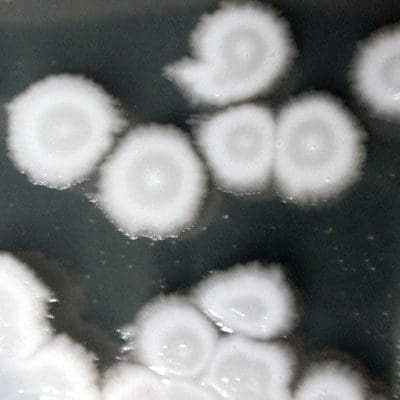
Get A Testing Quote
Bacillus cereus
Structure and Physiology
Bacillus cereus is a Gram-positive, rod-shaped, endopore-forming facultative aerobe bacterium related to Bacillus anthracis and Bacillus thuringiensis.
Transmission and Disease
Although B. cereus is commonly associated with food-borne illnesses, this microbe can also be responsible for several local and systemic infections.
Disinfection
Due to this bacterium’s ability to sporulate, B. cereus is often relatively challenging to disinfect.
Notes
Cultivating B. cereus generally takes 3 to 4 days as the bacteria must be grown on a specific agar media to induce sporulation.
References
Share

